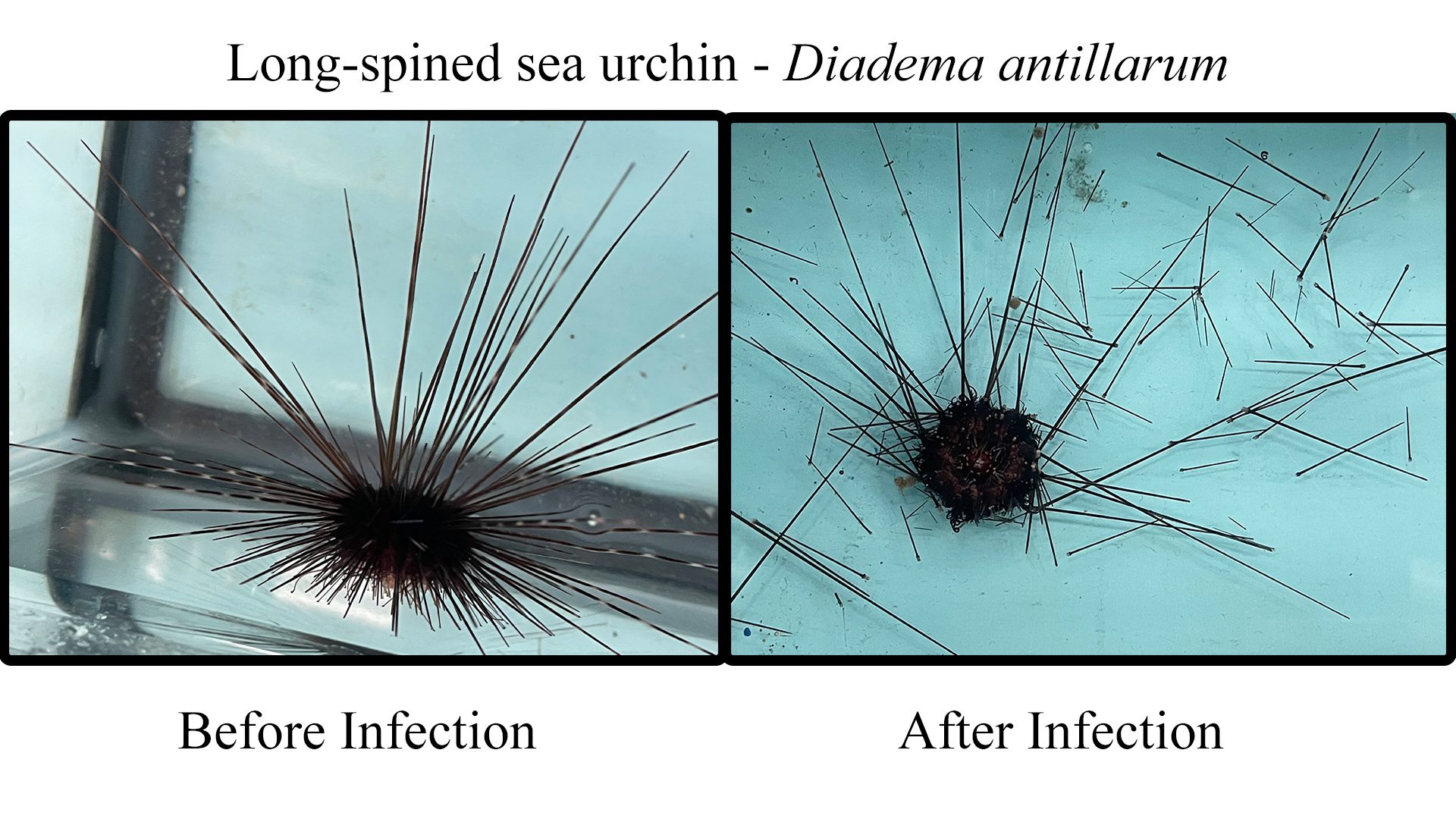In late January 2022, a mass mortality event struck the long-spined sea urchin (Diadema antillarum) population of several islands in the Caribbean. By June the problem had spread to Florida, USA, Curaçao, and most of the Greater Antilles.
These sea urchins live in warm shallow waters and feed on algae. Affected urchins showed problems with locomotion and loss of control of their tube feet, with the progression of the symptoms leading to spine loss. Within two days urchins that exhibited these symptoms, especially spine loss, were either predated upon or found dead. But what had caused this mystery die-off and how was it able to spread so rapidly?

The symptoms and progression of the infection are rapid. Image credit: Makenzie Kerr USF College of Marine Science
“At the time, we didn’t know if this die-off was caused by pollution, stress, or something else – we just didn’t know,” said lead author Ian Hewson in a statement.
Sea urchins are no stranger to die-off events. In the early 1980s, nearly 98 percent of the Caribbean population was wiped out by a still unknown cause. While there is no means of discovering what caused that die-off, at the time researchers believed that the cause was able to spread via the water currents over long distances. Estimates suggest that 30 years later, only 12 percent of the population has recovered.
What to do when a mystery needs solving? Assemble a team to crack the case, of course. A group of experts was organized in March 2022 and began observing the sea urchins. Collecting urchins from 23 sites across the Caribbean, the researchers began performing a series of tests to find the culprit.
And find it they did. The team revealed that the murderer in all these underwater deaths was a microorganism called a ciliate. These microscopic organisms are found all over the world in watery environments and while not usually disease causing, this specific species called a scuticociliate, resembling Philaster apodigitiformi, has previous, having been involved in other marine die-off events for species such as leopard sharks.
The team found the ciliate in every affected sample of sea urchins and even replicated the microorganism in a lab environment. When the ciliate was introduced to healthy sea urchins under lab conditions, these sea urchins died within a matter of days, mirroring what was happening in the wild. The team have called this mass mortality D. antillarum scuticociliatosis (DaSc), but have no way of knowing if it was involved in the 1980s die-off event.
“We’re beyond thrilled to get to the bottom of the 2022 mystery and a bit stunned we did it so quickly,” said Mya Breitbart, senior author on the study and an expert in marine genomics. “We had a great team in place and the tools needed to do the ocean science equivalent of a forensic investigation.”
While some questions remain about what prompted the ciliate to initiate this mass die-off and whether changing environmental conditions in the area have affected its growth, the team are pleased to have found the cause, and hope to share the knowledge and therefore be able to prevent further spread.
The study is published in Science Advances.
Source Link: The Case Of The Mystery Sea Urchin Killer Has Finally Been Solved